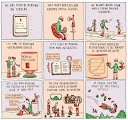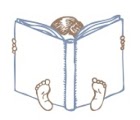A recent article as reinforced the fact that kids need free time. We have discussed this before in our entry on boredom as well as in the link on the alarming trend that boys are falling behind in school. Now new studies reinforce what any mother or father knows, kids need down time!
Interestingly in this day of No Child Left Behind and state and national standardization many schools have actually eliminated recess. Some estimate that up to 40% of all schools have done away entirely with the childhood institution with many more schools severely limiting free time. Administrators felt that time would be better spent cramming in as much teaching as possible. This trend hit poor performing schools the hardest, and these schools generally tend to be those that serve the poorest students. So recess was gone, along with art and drama and other classes that would have allowed students to move, express themselves creatively, and have a bit of down time. Now studies are showing that that was a desperately flawed decision when it comes to improving academic performance. Recess is a necessity. Children cannot be expected to sit through a six to eight hour school day without time to just be kids. The most recent research shows that children who have recess are more focused, can concentrate for longer periods of time, and are able to assimilate information more efficiently.
Academics aren't the only thing to show positive change when children have regularly scheduled recess, there are studies that link free time to significant improvements in behavior!
So, I was wondering how you structure your school day? I'm curious to know if you schedule your days after a school model or if it's more relaxed? Have you changed over time? What has worked for your family? Or is each child different? I know children who could sit still for hours, perfectly happy to just read and study, but most children need time to run and play. How do you account for different needs within your family?
New York Times
Slate Magazine
CNN
You may also enjoy:











































